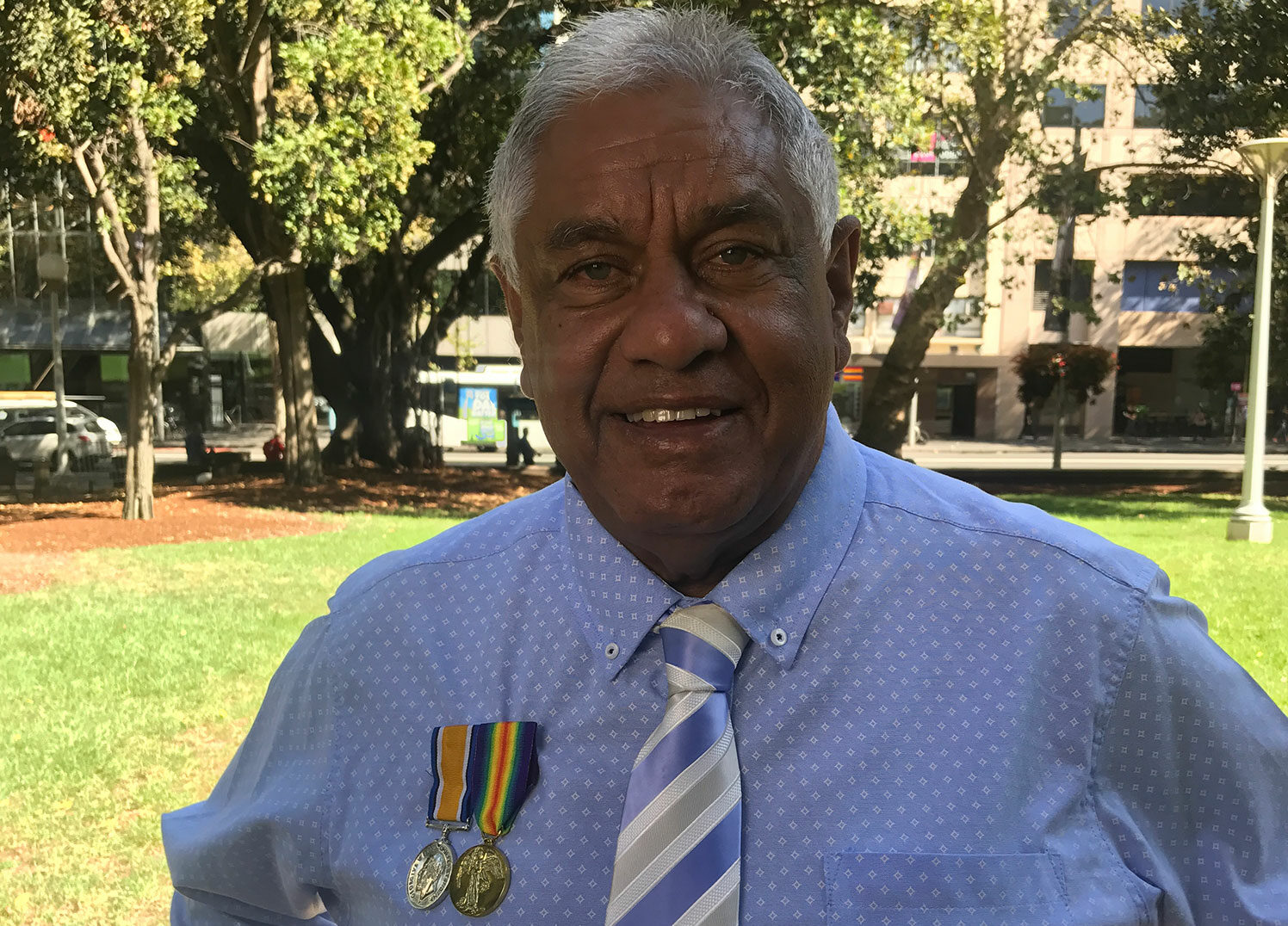National Sorry Day 26 May is not only a day to remember the Stolen Generation, but a day our nation can reflect. Joseph (Joe) Flick, has recently completed a Churchill Fellowship to honour the brave Indigenous men who gave their lives defending the country that denied them citizenship.
Joe said: “As our nation continues to struggle to find a way to reconcile its historical treatment of Aboriginal and Torres Strait Islander peoples, including with the debate involving a referendum on an Indigenous ‘voice’ to the Australian Parliament continuing to unfold, it is important that we pause to remember and acknowledge events and people that have helped to shape modern Australian society,”
“Hundreds of Aboriginal soldiers upon returning from war were ignored, their children denied school, denied soldier settlement land blocks, and soldiers even denied entry to the RSL and told to ‘go around the back and we’ll hand you a beer.,”
Joe is a Dubbo local, and proud Gomeroi/Yullaroi man originally from Collerenebri. His mother and grandmother were part of our stolen generation, and his grandfather fought in World War 1.
Joe’s Churchill Fellowship recently took him to France, England and Belgium where he identified 91 Aboriginal soldiers who died in battle, later of their wounds or disease, and was able to locate the graves of 68 of these soldiers.
Joe spoke of his Churchill Fellowship: “It was an emotional trip. Standing in front of the graves of these young men, from Cape Barren Island, and from some of the Aboriginal missions in NSW and VIC,”
“It is a little known fact that more than 1200 Aboriginal men enlisted in WW1. These blokes voted ‘yes’, we’ll go and fight for our country. Without them, and without all of our Australian solders, we wouldn’t have the freedom we have today,”
Joe conducted a small ceremony at each of the found 68 graves. He draped the Aboriginal flag across each of the headstones during the ceremony, laid flowers and left both an Aboriginal and an Australian Flag at the grave.
“I told them that their Mob loved them, and their Mob know where they are. I know a lot of their people wont get to visit those cemeteries,”
“It was really hard to perform those little ceremonies,”
Where details were known, Joe read names and acknowledged family details as well as playing the clapsticks to honour the too few years these young men lived. The playing of clapsticks is means of returning a spirit to Country, family and the Dreamtime. Each ceremony was finished with a recitation of the Ode and playing of the Last Post. Joe also commemorated the men who have no known graves but whose names are commemorated on Memorial rolls.
“When Aboriginal solders came home, they were treated differently. My grandfather, he wasn’t allowed into the RSL to celebrate Anzac Day. He was told to ‘go around the back and they would hand him a beer. These stories aren’t known or talked about. When my grandfather came home, his kids weren’t allowed to go to school – not until 1947. The majority of Aboriginal soldiers weren’t provided with soldier settlement land blocks either,”
Joe’s work to locate the graves was achieved through years of work by a number of researchers, families and Michael Bell, the Aboriginal Liaison Officer at the Australian War Memorial. Joe also thanks Marg Powell, Des Crump, Philippa Scarlett, and also the Commonwealth War Graves Commission for providing the names of the soldiers and the location of their final resting places.
“Because it’s such an emotional subject, I do become emotional,” said Joe.
Joe designed his Churchill Fellowship to research, document and record the resting place of Aboriginal World War I soldiers. His Fellowship not only brings an understanding – both to the general Australian public and internationally – of the role played by Aboriginal people in the defence of the Commonwealth but more importantly a sense of closure to these soldier’s family, friends and loved ones.
“What a sadly beautiful and long overdue way to honour these brave soldiers, to ensure their sacrifice is not forgotten.” said Adam Davey, CEO of the Winston Churchill Trust.
Joe describes his Churchill Fellowship report as a ‘living document’, inviting collaboration and hoping that his work to remember these lost soldiers is continued.
Joe’s Fellowship is an effort to engage with the Australian Government and people, but most importantly, Joe has completed this Fellowship for the descendants of the selfless men and women who sacrificed themselves for our freedom and peace. Joseph states that his Fellowship is “another phase of the identification, commemoration and awareness of the significant role played by Aboriginal people in defence of Australia in World War I.”
Read Joe’s report here.
